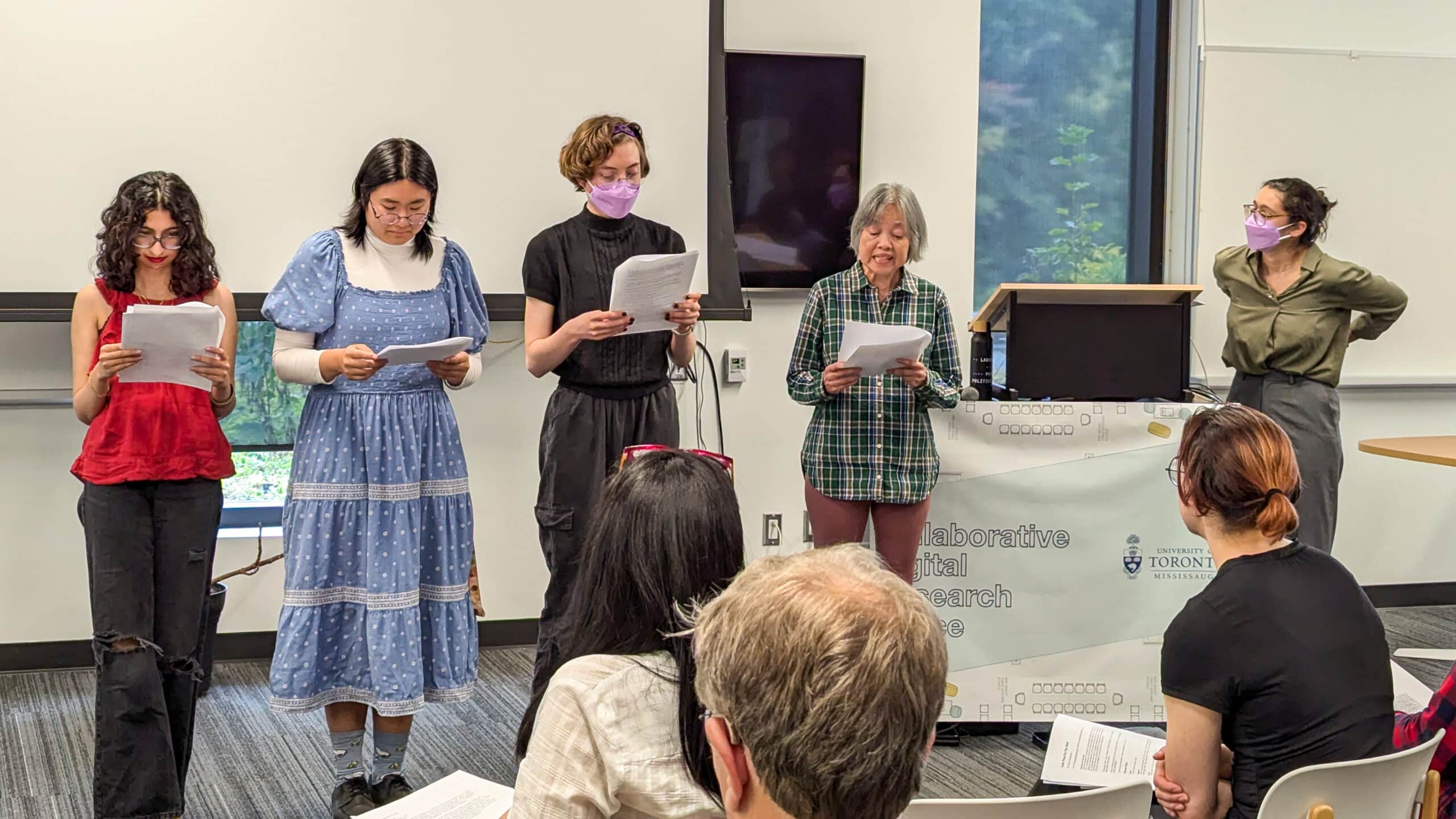A review of the Theatre of Science’s first seminar on theatre and the environment
The seminar included a lecture alongside short performances by undergraduate acting students, exploring the relationship between theatre and the environment.
On September 20, the Theatre of Science at the University of Toronto Mississauga’s Department of English and Drama hosted a free, in-person seminar as part of its JHI annual seminar series on theatre and the environment.
The eight-part series features explorations about the different ways science and the arts can help further each other’s goals and spread shared ideals to a larger audience. The eight-part series delves into how science and the arts can mutually enhance their objectives and communicate shared ideals to a broader audience.
The series seeks to connect students, staff and interested strangers who share a passion for both science and the arts with the goal of fostering a collaborative space for those participating.
The first seminar, on theatre and the environment, centred on the question, “Is there a role for theatre in climate change?” According to Canadian playwright and climate activist, Chantal Bilodeau, the answer is yes.
The seminar was split into two sections. In the first half, Bilodeau shared her journey into writing about climate change through the lens of her play—Sila. Bilodeau described the challenges she faced and how her views on the world have changed over time, while also touching on the importance of environmental conscientiousness and activism. To summarize her thoughts, we should not see the world as something to be used, but rather as something to care and love for.
Bilodeau’s Sila combines hard science with spirituality and the essence of the world. Through the unorthodox implementation of performance theatre, like shadow puppets and poetry, Bilodeau transformed the scientific realities of climate change into a narrative of hope.
“If I was going to write about climate change,” Bilodeau stated, “I would have to change how I wrote my play.” She explained how important it was “to understand how all these things fit together.”
Bilodeau highlighted the concept of radical hope as the key principle in writing about climate change. She stressed that the theatre’s role is not only to make audiences aware of the problem but to serve as a catalyst, inspiring them to recognize that solutions exist and motivating them to take action as part of those solutions.
The lecture concluded with two acting students from UTM’s Theatre, Drama and Performance Studies department acting out a scene from Sila.
The performance was a moving demonstration of the inevitable and cyclical nature of death in the environment. The scene contrasted death with the destruction man creates through climate change—a truly emotional scene that accentuated the play’s main themes.
The second half of the seminar, though not a lecture, was equally as educational and engaging. Theatre and drama students were divided into small groups of about five, where they discussed, rehearsed, and performed five-minute plays that offered commentary on the environment and human attitudes toward it. Not only was the performance educational and enjoyable, but it was clear even the performers were having a great time on stage.
Overall, the entire seminar was entertaining, engaging, and thought-provoking and left participants inspired and eager on how the arts can drive meaningful environmental action.

